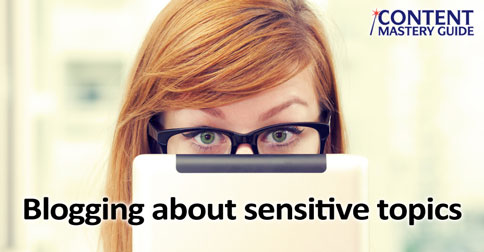
© astrosystem – Fotolia.com

© astrosystem – Fotolia.com
“I have always thought blogging is perfect for people running ‘sensitive’ businesses [such as family law and divorce], where someone may not want to admit even to themselves that they have problems.
It is highly likely they will start trawling the internet for advice or to understand where they stand. A blog is a really good way to create empathy long before the reader is ready to pick up the phone.”
Victoria Tomlinson is the chief executive of UK’s Northern Lights PR, an expert on social media, business and education, and author of a number of e-books on social media.
The above quote is from PRiME, a career site for women in their second act, where Victoria’s guest post recommends 20 business blogs for women over 50.
I thought her point about sensitive businesses also applied perfectly to wellness clinics, whose prospective clients are grappling with health concerns, or trying to transform deeply ingrained day-to-day lifestyle habits.
I asked Victoria to share her thoughts on this, and she graciously agreed.
[This] most definitely [applies.] And there are two sides relevant to this as far as health bloggers go. Our client, Pat Chapman-Pincher, just wrote this blog post last week and she said:
“I learned an interesting lesson when my husband had a major, but rare, operation. The moment the diagnosis was made I started to research the operation. The results were not encouraging, the survivors (who were very vocal) seemed to have bad side effects and an impaired quality of life.
What I learned in the next few months as he made a full recovery was that the information was very selective. Doctors of course are required to tell you everything that might go wrong and those who had no side effects were too busy getting on with their lives to bother with complaining about them online. Happy people don’t post.”
So this is an opportunity for professionals to provide clear factual information, the good and the bad and put it in perspective. But also to provide commentary on what patients/carers/families might find if they were to search – recognising what is coming top of Google and then providing independent, impartial comments to balance the negative.
How do you see the relationship between empathy and trust?
Empathy is all about the reader going ‘that’s me’. I think trust comes when you see consistency and empathy over time. That the blog posts you write are always written with the best interests of the reader in mind. And never do you go ‘salesy’ and spoil that brand. It takes time to build trust, empathy can be achieved from one post.
What are some of the steps wellness bloggers can take to express empathy for their readers and prospective clients?
The best way to create empathy is to listen to the questions that their patients/clients are asking them. These are their gems and treasure them. They are what readers will be searching online.
The blogger then needs to talk to the reader as if they were in their clinic or at a meeting and answer their questions honestly, without jargon and giving lots of examples to bring the points to life (storytelling).
Referring (anonymously) to patients will help this, e.g., ‘I had a family in my clinic last year and the thing that worried them most was ….’ So you are making the blog a fantastic repository of discussions from the clinic. A brilliant resource for any patient and creating lots of empathy in this way.
What do you think has to happen for people to move from anonymously trawling the internet and reading blog posts to actually reaching out by phone or email?
Blogs need personality and ownership. There are still blogs where companies post anonymously – these do not engage. But if you put a name to it and people can find out more about you online (Twitter, LinkedIn, articles about you, etc.) and it is all consistent and really helpful, this builds a relationship. And it happens quite quickly online.
People don’t create relationships with faceless corporates; they do with a named and pictured individual.
How can wellness bloggers increase the odds of this happening?
Give plenty of options to contact directly. These would include a direct email (not a contact form which feels so faceless and impersonal), a mobile number, and ensuring people can leave comments on blog posts. Everyone is individual and some will prefer mobile, others email and so on.
The key is that whatever contact details you leave, someone is answering every day. People may have had to pluck up a lot of courage to make this contact step – and not replying for days or weeks could be really damaging.
For readers with sensitive health issues, blogging is a very effective way to show empathy and build trust. Be sure to nurture these building blocks of a long-term relationship with clients and prospective clients.
Thank you so much to Victoria Tomlinson of Northern Lights PR for sharing your expertise with us!
P.S. If you liked this post, you might enjoy the Blogging Tips newsletter, delivered weekly to your inbox! Sign up here.






